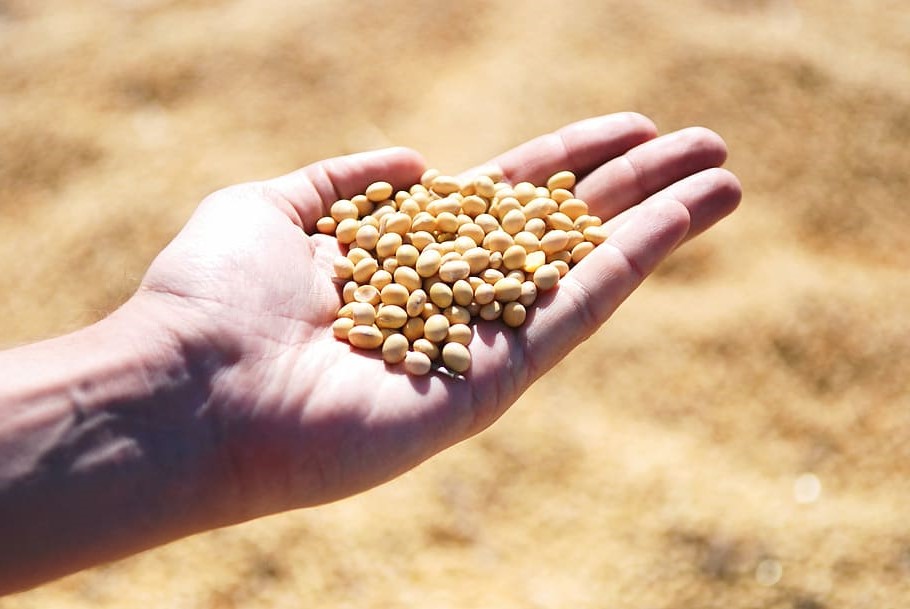
- Industry news
Industry news
- Category news
Category news
- Reports
- Key trends
- Multimedia
- Journal
- Events
- Suppliers
- Home
- Industry news
Industry news
- Category news
Category news
- Reports
- Key trends
- Multimedia
- Events
- Suppliers

19 Feb 2020 --- Seed breeding specialist Equinom has closed its Series B round of funding of US$10 million, led by BASF Venture Capital. Using the new capital injection, the Israeli start-up aims to expand its novel cross breeding method of plant seeds, which raises a crop’s protein content and tailors its organoleptic properties to the specifications of a particular company. Equinom further anticipates the launch of its high-protein pea variety in 2021.
“This investment round has been highly successful and combines financial investors as well as strategic investors and as VCs from multiple regions around the world,” notes Gil Shalev, CEO of Equinom. “It will accelerate Equinom’s expansion globally and allow us to build talent and infrastructure to better serve our clients locally. Already, we have enjoyed sales growth across four continents in 2019.”
Using non-GMO techniques, Equinom crossbreeds plants to reach a functional composition of protein, starch, fiber and sugar content. Through the use of biochemistry tools, the start-up can create new breeds of seeds every year, tailored to specific food applications.
 Equimon introduces high-protein legumes, such as soybeans, peas, chickpeas, cowpeas, mung beans, fava beans and quinoa. “We also plan to launch our high-protein pea variety in 2021,” adds Shalev. “Equinom will continue working with plant-based food ingredients and food companies to help create tasty, “cleaner” plant-based applications. We already have clients producing products with our smart grains, which provide higher quality, improved nutritional values, and lower production costs.”
Equimon introduces high-protein legumes, such as soybeans, peas, chickpeas, cowpeas, mung beans, fava beans and quinoa. “We also plan to launch our high-protein pea variety in 2021,” adds Shalev. “Equinom will continue working with plant-based food ingredients and food companies to help create tasty, “cleaner” plant-based applications. We already have clients producing products with our smart grains, which provide higher quality, improved nutritional values, and lower production costs.”
Designing “smart” seeds
Equinom is marketed as the first company to design seeds exclusively for the food industry, enabling clients to choose specific varieties for their needs. The designer seeds are positioned to enable food companies to provide clean label, sustainable meat alternatives.
“By increasing the content of protein on the seed-level, you can achieve a higher protein flour by 65 to 75 percent because you start with grains that have 50 percent more protein. This amount for a flour or ingredient could only be achieved in the past by using isolation and purification processes. Working from the seed level creates cleaner labels with less solvents,” Itay Dana, Marketing Director for Equinom previously told FoodIngredientsFirst in a recent exclusive interview.
Shalev founded the company eight years ago, recognizing the need to improve the food supply and make it more affordable, with a primary focus on the source of the challenge – seeds and legumes. Equinom has been building a new “ecosystem” that directly connects food companies to the supply chain, elevating transparency and paving the way for more responsible plant protein sourcing.
Smart seeds are more nutritious than traditional commercial varieties, featuring protein and oil contents among the highest in the market. Equinom introduces such high-value characteristics and organoleptic properties by combining advanced sensory technologies with high-throughput protein analysis systems.
In particular, Equinom offers high-oil-content sesame that enables flexible cultivation options. Shatter-resistant sesame, one of Equinom’s flagship crops, can be harvested mechanically and grown around the world. This allows farmers to grow locally to meet the rising demand for this customized oilseed, which produces some of the highest oil content in the industry and is rich in fiber, vitamins and minerals. Equinom says its sesame sets the ground for the advancement of a more responsible supply chain, greater price stability and cost-effective growth.
Innova Market Insights pegged the “Plant-Based Revolution” as its number two trend for this year. The market researcher highlights a 59 percent average annual growth in global F&B launches with a “plant-based” claim (CAGR 2014 to 2019).
Within the vegan meat space, the market researcher’s 2018 consumer survey showed one in five US consumers “have eaten less meat across the past year.” Meat substitutes accounted for 14 percent of global meat launches in the first nine months of 2018, up from six percent in 2013.
Notably, participation in Equinom’s Series B funding round marks the first investment in an Israeli company for BASF’s venture capital arm, which previously joined an initial funding round. It is also the first investment for the Trendline Agrifood Fund; the Singapore-based fund managed by The Tradlines Group operating in Israel.
FoodIngredientsFirst has reached out to Equinom for further details on its plans to diversify its offerings of high-grade seeds.
By Benjamin Ferrer











